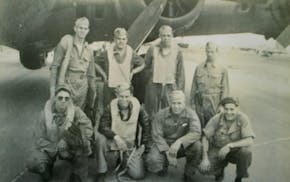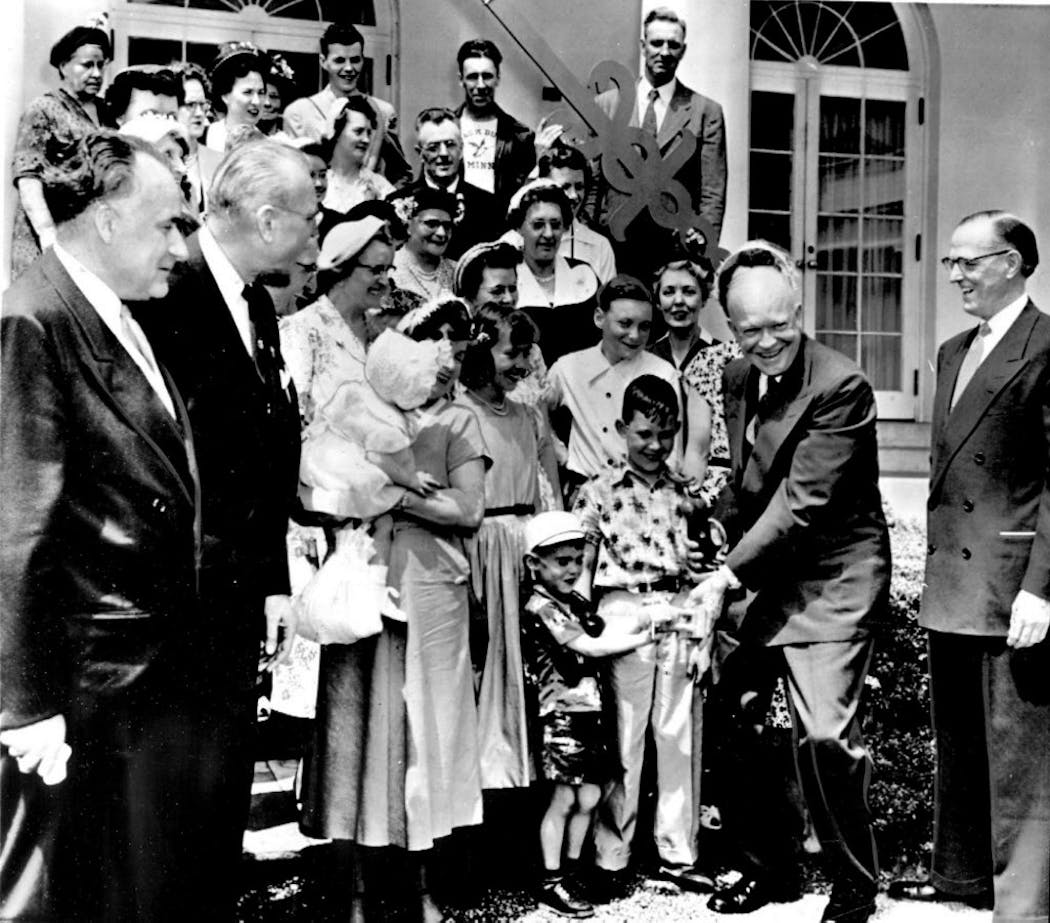A generation after the logging boom fizzled in the North Woods, the population of Funkley, Minn., had dwindled to about two dozen people by 1953 — making believable their claim to be the smallest incorporated village in the state.
The town's constable had made zero arrests the previous year. A 78-year-old former railroad coal heaver, Ed Wooden, had served for more than three decades as mayor of the hamlet with eight homes and a village hall, 30 miles northeast of Bemidji.
About the only action in sleepy Funkley came when the Women's Missionary Society at the Evangelical Free Church gathered monthly to tear up old bedsheets and turn them into bandages for cancer sufferers.
Never mind that nearly 4,400 other groups across the United States were remaking bedsheets for cancer patients in the early 1950s. When the American Cancer Society got wind of tiny Funkley's big-hearted efforts, 25 Funkleyites (and eight others from the area) were flown to New York City in May 1953 on an all-expense-paid publicity junket launching a nationwide campaign to collect bedsheets for dressings.
They received a police escort on Broadway, celebrated the first birthday of the delegation's youngest member atop the Empire State Building, appeared on TV with Dave Garroway and Garry Moore, attended a New York Giants ballgame and visited the United Nations.
A last-minute side trip was added to Washington, where they met with President Dwight Eisenhower, Vice President Richard Nixon and FBI boss J. Edgar Hoover. James Bryce, a Northern Pacific railroad worker, even brought his dog Blackie — who took a bath in the White House fountain.
"It was a big deal and pretty exciting for a little farm boy like me," Richard Nagel, 82, recently said from his home in St. Michael, Minn. "I think I remember the plane ride more than anything."
Now a retired Honeywell technician, Nagel was 12 when he boarded that Northwest Airlines Stratocruiser with his family for his first flight and only trip to New York City 70 years ago. None of the folks from Funkley knew what to expect.
"I thought New York would be big and unfriendly," Josephine Smith, a 66-year-old widow in the delegation, told the Minneapolis Tribune's Barbara Flanagan. "But you know, I felt right at home there."
The food out East, including dinner at Sardi's off-Broadway, "sure beat rutabaga soup," according to Funkley farmer Al Nagel, Richard's late father.
Al's wife, Lydia, and five of their children joined the trek — including Richard and Nancy, his baby sister and the birthday girl, who now lives in Southern California. Upon their return, Al told reporters that "a lot of us have stiff necks" from gazing up at Manhattan's skyscrapers.
Pacific Mills, a maker of bedsheets, footed the bill for the trip — which didn't exactly go off without a hitch. Mayor Wooden, who was born in 1874, told the Minneapolis Star before the trip that he would be on the plane "if they have to take me aboard on a stretcher."
Wooden actually returned home on a stretcher, after busting a couple of ribs when he slipped in a bathtub at the Mayflower Hotel in Washington. Though he missed meeting Ike, Wooden spoke with New York City Mayor Vincent Impellitteri. After comparing annual budgets — $300 in Funkley, $2 billion in the Big Apple — Impellitteri asked Wooden: "Do you want to switch jobs with me, Mr. Mayor?"
Wooden didn't think so. "I wouldn't have so much time to go fishing," he explained.
Not everyone in Funkley joined the junket. The Nagels' oldest son, 18-year-old Jerry, stayed on the farm, and two old-timers remained in Funkley to keep an eye on things. Hank Huffstutler, 80, who had last visited New York City in 1900, said the place was "just a lot of concrete" and that he "never cared much for city life."
At an early morning breakfast stop at the Waldorf-Astoria, the Funkley delegation found only one beleaguered worker. "So we took over," Bryce told a reporter, with Al Nagel making pancakes and the Funkley women serving coffee.
"They gave us cameras and six rolls of film, so I took a lot of pictures," Richard Nagel said. "But none of them turned out."
But his memories of the big trip from Funkley remain fresh, and he keeps a scrapbook in his closet chock-full of the media coverage — including a four-page spread in Life magazine, with Marilyn Monroe and Jane Russell on the cover.
The headline on page 57 from the May 25, 1953, Life proclaims: "TINY FUNKLEY TAKES A TRIP." One of the accompanying photographs shows the Paul Bunyan and Babe the Blue Ox figurines that the Funkley folks brought along as gifts for their big-city hosts in the East.
Curt Brown's tales about Minnesota's history appear every other Sunday. Readers can send him ideas and suggestions at mnhistory@startribune.com. His latest book looks at 1918 Minnesota, when flu, war and fires converged: strib.mn/MN1918.

Minnesota History: Ad man turned Paul Bunyan into a folklore icon
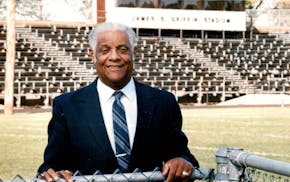
Minnesota History: James Griffin used persistence to blaze a trail for St. Paul's Black police officers
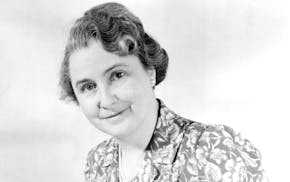
Minnesota History: For Granite Falls doctor who tested thousands of kids for TB, new recognition is long overdue
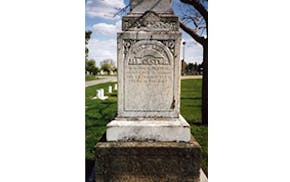
Minnesota History: A New Ulm baker wearing a blanket fell to friendly fire in the U.S.-Dakota War
